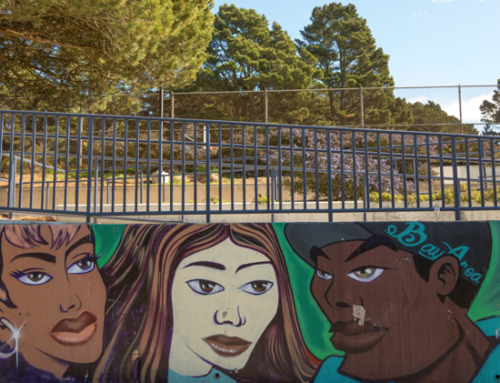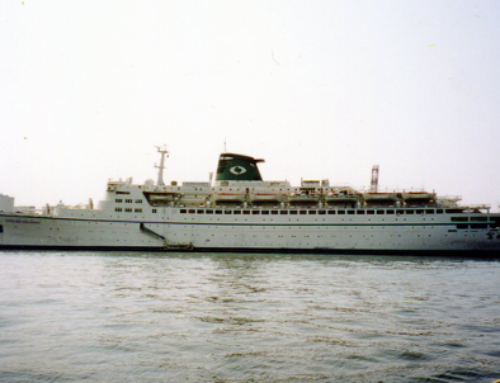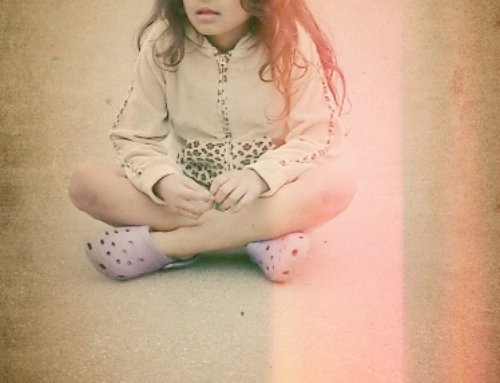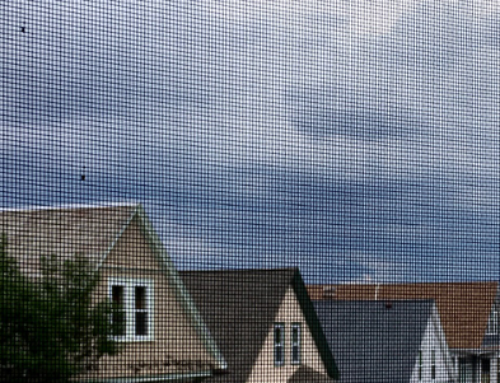The capacities to smile and laugh are competencies that we all have, but more than ever before arethreatened by the introduction of masks as interface for relatively safe interactions during the pandemic. I travelled to Bamenda just after the Covid-19 storm began to subside. My last visit was in 2015, several months before the city was engulfed in a long and brutal series of conflicts about poor governance, maladministration, and the right to smile. For years, and until my recent visit, violence between state forces, secessionists, and private militias turned this already neglected municipality into a near forbidden land of extrajudicial killings, swelling massacres, frequent kidnappings, and never-ending gun battles whose tenacity has earned them the name “drums.” Their thunderous bangs have become like music to the ears of frightened locals, many of who continue to be displaced from their homes.
The pandemic and the global regulations to flatten the curve of its spread had prevented me, just like many others around the world, from reuniting with my parents, siblings, and the rest of the family. I wanted to see them, and also to understand what had become of Bamenda where my fieldwork was carried out, particularly with the Ntambag Brothers of Old Town. This dynamic group of young men and their association, now transformed into a civil society group, are the subject of the book I am writing on the politics of suffering and smiling amongst youth in African cities. I arrived to do what in anthropology is sometimes referred to as verification and updating, that last exercise to test the validity of our conclusions, to say goodbyes, and to plan future entanglements. For some of us, those who are also locals, the ethnographic field cannot be exited. The entanglements are permanent and constantly permeate the deepest aspects of our personal lives. We must return home to the field regularly, return to our life, to reconnect and renew.
Bamenda is a kind of happiness hub, a Carrefour de la joie. There is a cult of orality that defines living in this place. So much of conviviality happens through the mouth. Life is in the palate. Living and living well happens through saliva. In Bamenda, people chop life. In fact, locals, also known as Abakwa people, hold that every great problem can always be sorted through an “arrangement,” which can also not happen without chopping. There is a joie de vivre, always accompanied by an amouse bouche of smiling and laughter. It is the aperitif, the entrée, the plat du jour, and the dessert of encounters. Smiling and laughter is so important that one of its famous sons, Simon Achidi Achu, Prime Minister from 1992-1996, embodied the spirit of smiling so much that he was nicknamed “la vache qui rit,” that is, the smiling cow. That this became the subject of my work is therefore naturally rational.
During the pandemic, social distancing and masking had threated to denaturalize the primordial essence of smiling and laughter in the socio-cultural and political landscape of Bamenda. Laughing was not just contagious. It was responsible for the contagion. In societies of conviviality where the intensity of relations and encounters is best described as promiscuous, laughter, according to global research, was indeed infectious. Like really infectious, because of its powerful capacity to spray and transmit gazillions of corona droplets through a single outburst of comic relief. The virus had mutated. Scientific modeling and simulation showed that the speed of transmission and severity of the infection was even more intense when the laughter was provoked by a joke about the pandemic. It boosted and enhanced the ejection of the viral droplets through a compendium of bodily outlets including the mouth, eyes, nostrils, ears, anus, armpits, vagina and penis, and even through the pores. The World Health Organization and its global partners legislated that laughter had to stop.
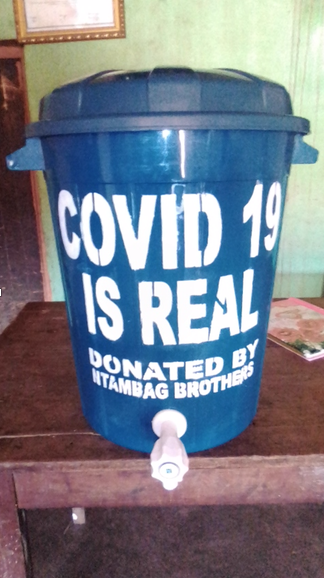
Covid-19 water dispenser donated by the Ntambag Brothers of Old Town, Bamenda. Photo Credits: Photo by Ntambag Brothers
Laughter is present early in the mornings when the “liquidation committee” converges for a conference over mimbo, the ubiquitous alcohol that has become emblematic of being and personhood in this place, particularly for men. Whether in front of newspaper stands where animated mobs outcompete each other to master the headlines, or in taxis where crowds test the mechanics of spatial plasticity, at “matango joints” (bars) where faithfuls assemble to worship palm wine, or in eating houses where everyone convenes to wash down their bellies, or in the market where commerce is an exercise in the spoken word, smiling and laughing are essential ingredients in the phenomenology of acquaintance, friendship, and companionship.
It was this that brought me back home, to the field, my entanglement. Smiling, laughing, and the irony of contagion. What had become of this town, of its people and their politics of solidarity in the midst of the pandemic? How had Covid reconfigured conviviality, sociality, and laughter? What had become of the smiling that the people of this town were famous for? How was it to laugh and smile behind a mask? What future did this cultural artifact portend in this place, and in the life of its people?
The worst of Corona’s episode had ended and it was clear from my observations and conversations with inhabitants that people were piecing together the social infrastructure that would maintain the new political community forged during the crisis, with dignity and solidarity as its tenacious organizing principles. At the heart of the pandemic, as infections reached a peak, and numbers of the sick and the dead reached unmanageable proportions for state infrastructure, the government panicked; many public officials withdrew into seclusion, leaving communities to the residents, and leaving Covid for everyone. As international cooperation agreements collapsed, bilateral agreements were plundered, and medical supply chains disrupted to serve the needs of PPE-producing countries, authorities here simply absconded their responsibility. The situation had become, in Abakwa idiom, “too much,” that is, unbearable for government.
In Old Town, already accustomed to this social abandonment, the Ntambag Brothers had moved in to save the community from potential carnage, especially given the intensity of relations in this high density neighbourhood, where one person’s front yard is another’s latrine or kitchen. Here, also, pedestrian pathways and roads interpenetrate compounds; everyone’s privacy is anybody’s business. In Old Town, everyone is family, and as the Ntambag Brothers always say, “One love. We are together.” Even though composed mainly of hustlers, the group, as is its practice, pulled together resources through contributions from its local, and now transnational, web of members to supply personal protective equipment to public health facilities, to install mobile water points for hand washing, and to distribute masks and hand sanitizers to inhabitants and visitors.
The group established a troop of volunteers, composed mainly of its members committed to saving lives in the community, where many are jeopardized by protracted neglect and precarity. The Ntambag Brothers established a clinic in the community and mobilized young people to serve society by joining the team of volunteers in collecting samples, caring for the sick, looking after the elderly, feeding the needy, and providing essential services. In the midst of the pandemic, they had, as I observed, begun to define a new relationship between community, inhabitants, and public service. As other young people had taken up arms to fight marginalization by the central government, these boys, now men, were radically disrupting the Weberian ideology of statehood founded upon monopoly over violence, and replacing it gradually with the notion of a state as an entity of solidarities with monopoly over care. They had, through their actions, resuscitated the laughter and smiles that had become both socially and physically distant, but effaced by new regulations imposing the wearing of masks in public.
When I arrived in Old Town there was a remarkable display of effort by everyone to smile, something I only decoded and became conscious of later on during my stay, as I tried to understand what had become of people’s laughter and expressions of smiling in the course of the epidemic. I had interpreted the cheerfulness I saw on people’s faces as genuine relief from the imprisonment and psychological torture provoked by extensively extended lockdowns. But it was a resolute performance, which seemed natural to me at the time. As masks came off, this expression of gaiety remained, perhaps as a reminder of a time people may choose to forget. The corners of many mouths permanently remained curved slightly upwards, with ever-brightening eyes, wearing the charm and attraction of dilating pupils. It was a pleasant sight and seemed to me then that everyone appeared to be flirting, especially given what social and physical distancing had done to intimacy. But this was not entirely the case. It was a mechanism for surviving the pandemic, subverting social abandonment, and making a mockery of the virus and urgency of the global regulations to contain it.
This encouraging facial expression, the smile, was not just the resuscitation of Old Town and Bamenda’s social norm and cultural artifact. It was also the archive of the pandemic’s reconfiguring of corporeality and bodily techniques through required masking. The lockdown had scripted itself unto bodies. Residents told me that as the death toll from the disease increased and security forces were deployed by the state to enforce preventive measures after the desertion of government institutions by public officials, the Ntambag Brothers, together with the people of this city, Abakwa, imposed a mandatory smile and laughter requirement for everyone to overcome dystopia, to subvert administrative authority, and to defy chaos and mass fatality, especially that which predicted deaths and suffering of Biblical proportions across the African continent. To survive the pandemic, the people of the city knew well enough to code the virus’s DNA and its preventive measures into the microbiology of our sociality. In the end, the smile was just another mask activated to contain the precarity of being after the storm of the pandemic. Smiling and laughing had not only been deployed to survive the pandemic. In fact, after Covid-19, smiling and laughing had themselves become a resilient pandemic requiring a different kind of sanitizing, social distancing, and masking, especially given the manner in which masks made it difficult to decode and distinguish smiling, laughing, and grimacing.
Cite as: Fuh, Divine. 2020. “Smiling Behind the Mask.” In “Post-Covid Fantasies,” Catherine Besteman, Heath Cabot, and Barak Kalir, editors, American Ethnologist website, 27 July 2020, [https://americanethnologist.org/features/pandemic-diaries/post-covid-fantasies/smiling-behind-the-mask]
Divine Fuh is a social anthropologist and Director of HUMA-Institute for Humanities in Africa at the University of Cape Town, South Africa.
